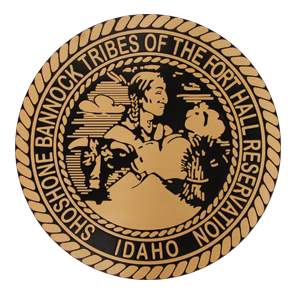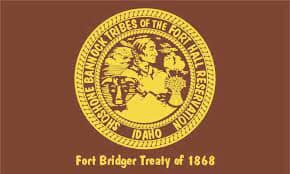June 30, 2020
FOR IMMEDIATE RELEASE
Fort Hall- the Shoshone-Bannock Tribes received official notification of two (2) new positive COVID-19 patients on the Fort Hall Reservation. Tribal Health and Human Services in conjunction with Southeast Idaho Public Health District 6 are following protocols that include daily monitoring for 14 days to ensure their needs are met and they are following the self-isolation guidelines as outlined in the Tribal government requirements.
· Patient is a female in her 50s from Bingham County. She is recovering at home. Patient had contact with a confirmed case.
· Patient is a female in her 70s from Bingham County. She is recovering at home, caught from community transmission.
More test results from this past weekend are expected to be available tomorrow to report upon. The Tribal Office of Emergency Management (TOEM) and Tribal Health department will continue to monitor the situation closely and is working with the Idaho Department of Health and Welfare, Tribal leaders, schools, emergency management, healthcare providers, and our community at large to help prevent the spread of this virus. We encourage families to help “do your part’ by communicating with your loved ones to take action on implement good habits to prevent the spread of germs, here are some helpful tips:
1. Avoid close contact. Avoid close contact with people who are sick. When you are sick, keep your distance from others to protect them from getting sick too.
2. Stay home when you are sick. If possible, stay home from work, school, and errands when you are sick. This will help prevent spreading your illness to others.
3. Cover your mouth and nose. Cover your mouth and nose with a tissue when coughing or sneezing, place the tissue immediately into a trash can. It may prevent those around you from getting sick. Flu and other serious respiratory illnesses, like respiratory syncytial virus (RSV), whooping cough, and severe acute respiratory syndrome (SARS), are spread by cough, sneezing, or unclean hands.
4. Clean your hands. Washing your hands often will help protect you from germs. If soap and water are not available, use alcohol-based hand, rub with at least 60% alcohol. Gently massage soap for 20 minutes prior to rinse.
5. Avoid touching your eyes, nose or mouth. Germs are often spread when a person touches something that is contaminated with germs and then touches his or her eyes, nose, or mouth.
6. Practice other good healthy habits. Clean and disinfect frequently touched surfaces at home, work or school, especially when someone is ill. Get plenty of sleep, be physically active, manage your stress, drink plenty of fluids, and eat nutritious food.
For more information and updates on Coronavirus cases, please visit: www.cdc.gov or visit the Tribes COVID website at www.sbtribes.com

